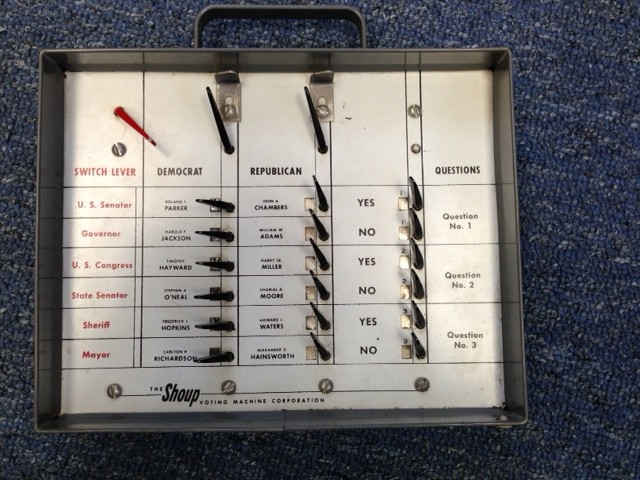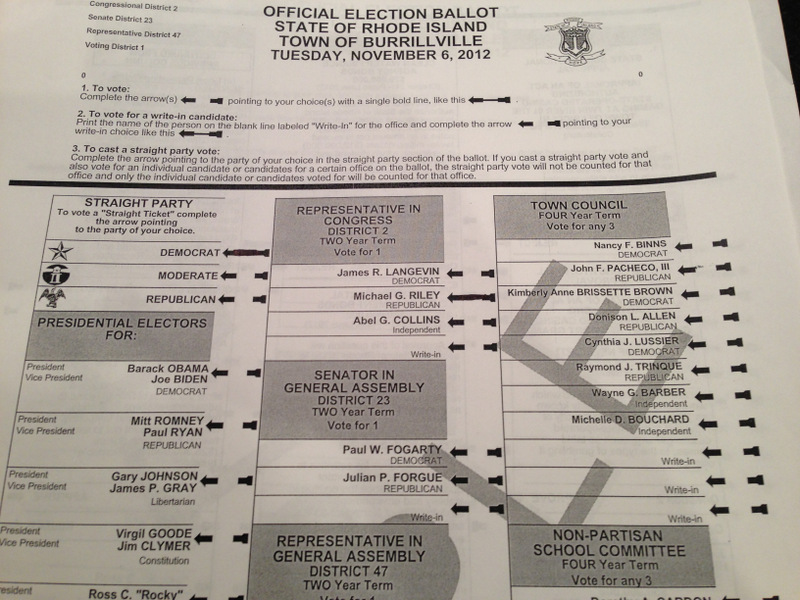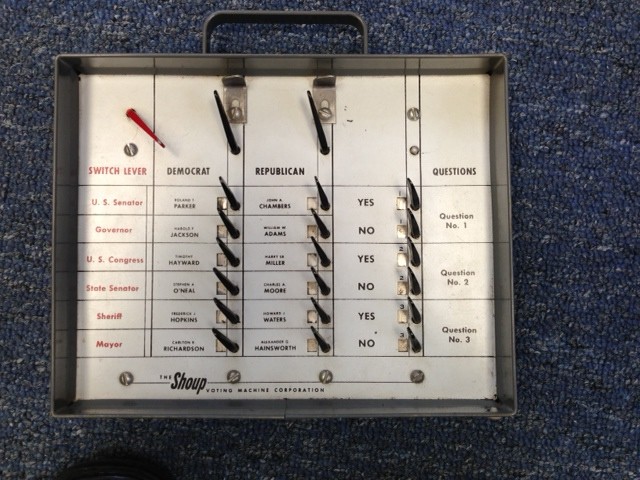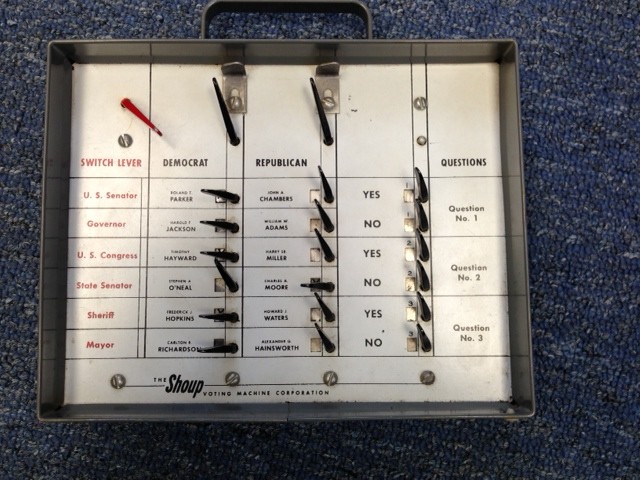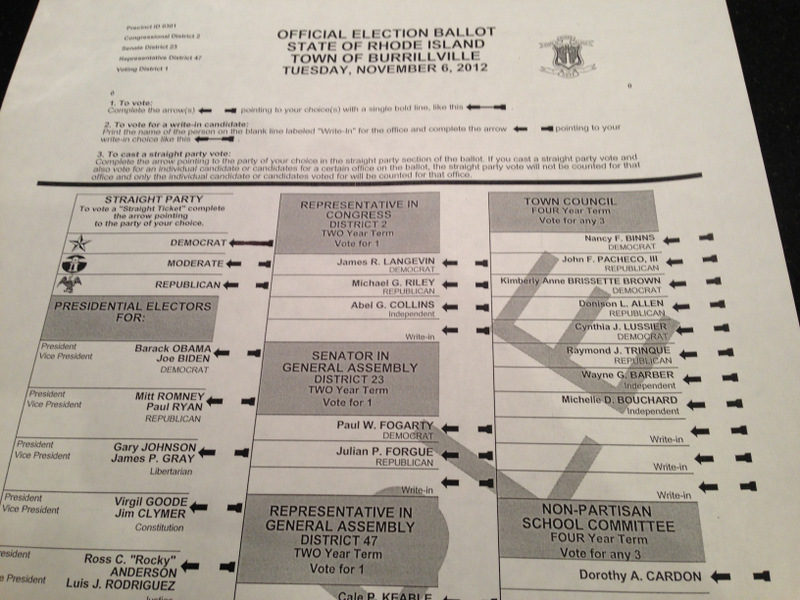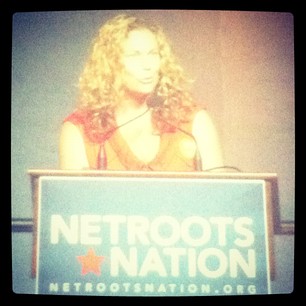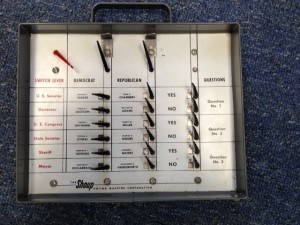 On Monday morning, I argued that abolition of the single party option (SPO, better known as the so-called “master lever”) should fail, even though it’s good policy to abolish it. In it, I argue the opposite for what I’d argued about five months before: that regardless of the benefit abolition would accrue for proponents, it should be eliminated as a matter of good policy, and even as a matter of good politics for the establishment.
On Monday morning, I argued that abolition of the single party option (SPO, better known as the so-called “master lever”) should fail, even though it’s good policy to abolish it. In it, I argue the opposite for what I’d argued about five months before: that regardless of the benefit abolition would accrue for proponents, it should be eliminated as a matter of good policy, and even as a matter of good politics for the establishment.
As Ken Block, the lead advocate for the abolition points out, that makes me a hypocrite. Block also points that I’m essentially advocating to keep voter confusion for the elderly, less educated and black until such a time as a larger reform can be passed so a better system can be created. Basically, even though we know the car of elections has a whole host of issues, I’m suggesting we don’t fix this one part now.
I can’t deny that this makes me hypocritical. The earlier post is right and the second post is wrong. But that doesn’t comfort me much.
Because now we’re in a discussion about tactics for long-term change. Winning a battle isn’t winning the war, and if your war is for greater representation in our democracy, then the master lever is a not particularly important battle and it absorbed far too many resources and far too much time. It’s a sideshow campaign; we know that early voting increases turnout. We know that first-past-the-post voting systems (where a candidate only needs a plurality to win) favor two-party systems with one or two exceptions in the world. And we know that Rhode Island’s electoral system is rigged (both presently and historically) to favor two parties, and usually the incumbent one at that. We also know that eliminating the master lever reduces the number of erroneously filled-out ballots. It’s not a sea-change issue.
It’s also an issue that, unfortunately, encompasses Ken Block.
And due to his advocacy it’s something that really can’t be divorced from him, and by extension, his political party. That’s probably why it’s pretty much dead at this point. Passing it would be a political win for the Moderate Party and they don’t even have an elected politician. The problem with Block is that he can’t recognize that his position as Moderate Party chair makes him a partisan (it’s literally is derived from a word for “defender of the party”). It means that everything he touches becomes tinged by politics. He says he’s a partisan “for non-ideologically based politics and governance” in which case he’s a partisan for unicorns. Politics without ideology is politics without politics. There is no such thing as a non-ideologically driven political actor and for Block to profess to be such an actor makes him either a liar or a fool.
Let’s get back to tactics, because talking about Block reminds me of a good comment Jason Becker made on Monday’s post; that it’s bad to throw out good policy because of the messenger. Block isn’t really the issue, he’s the quintessential do-gooder who does no good. I’m not worried about what happens when the master lever issue ends. Will that be it? We’ll hold a celebration, everyone will slap each other on the backs for a job well-done and they’ll all go home. Elections solved! Democracy free and fair!
A few people will make fewer mistakes. But the resources devoted to abolishing the master lever won’t return to advocate for the next issues in improving our elections. Higher turnout increases Democratic votes; so don’t expect the Moderates and Republicans to join in on anything that would do that. Campaign finance reform will help people who aren’t beholden to corporations or high-money players, so don’t expect businessmen concerned about “economic competitiveness” to start howling for that. This isn’t a bill in most of the advocates minds about helping the less educated, or elderly, or black. It’s a bill about breaking an institutional advantage for Democrats.
How do we know that? Because let’s look at the events that preceded John Marion’s piece in RI Future. The SPO abolition camp had never pointed to the seven-year-old study Marion cited until the Monday of the Boston Marathon. I applauded Marion for that piece at the time, because it rescued the SPO issue from Block’s poor shepherding of it.
When faced with the setback of the bill being held for further study, Block attacked Speaker Fox and Sen. Harold Metts as needing the SPO to win their races. And it stunk of politics. It reeked of political anger. Block had passed around erroneous ballots, but it wasn’t clear what that meant, whether they’d been scratched on purpose or whether they were the result of legitimate confusion. The problem with anonymous voting systems is you can’t ask people what they meant to do.
Marion saved the anti-SPO campaign from itself, in my view. I would never dream of speaking for him, because Common Cause is in it for the long haul and wants good government whether you’re Dem, GOP, Mod, Green, or Indy. Which is typical of an advocacy organization. When Marion writes, it’s from a place of deep expertise and understanding.
When I write, it’s from a place of passion, and often speculation. I warn readers about that pretty consistently. Push back, question me, etc. I enjoy the fight. I also enjoy watching the Moderate Party, because I enjoy watching fringe political movements. The Moderate Party is a fringe movement. It’s a fringe that claims to be in the center. But frankly, so what? Every fringe claims to be mainstream. There’s only one person in the Moderate Party who matters; Ken Block. Why does he want to abolish the SPO? He’s been quite forthcoming about it; potential Moderate Party candidates won’t run if the master lever bogeyman is out there. How was this issue not politicized and ideological?
Block’s mismanaged the master lever campaign. He made himself the face of it. And did he offer up a win to politicians? No. He didn’t bother. He didn’t bother doing the political part of politics. Contrast this with the marriage equality movement. Not only did the marriage equality forces offer up a real threat in the form of primary and general election challenges to anti-equality politicians, but they also offered support and publicity for pro-equality politicians. Marriage equality played a long-term game, they fought, and when they faced a setback they came back with a vengeance. And it worked.
Can Block offer this same combination of stick and carrot? No. He can’t even get more than a few people to stand up for their political beliefs (their ideology) and actually run. And he can’t offer politicians support, because none of them are Moderates; nor does Rhode Island have a system of electoral fusion to allow candidates to run under multiple party banners (another reform that could help). Instead, he’s focused on a paternalistic shame campaign targeting the House Speaker and Senate President. And the genuine mainstream responds to the fringe the way it generally does, with a shrug.
Some days I agree with Ken Block. I want SPO gone so more third parties can succeed. I want the Moderate Party developed so we can actually see it in action. And then I see what he does with any kind of press, and I hope he never has success because the Moderate Party under his leadership will try to save our social safety system by destroying it. That the Moderate Party in Rhode Island are just re-branded Rockefeller Republicans.
F. Scott Fitzgerald once wrote that “the test of a first-rate intelligence is the ability to hold two opposing ideas in mind at the same time and still retain the ability to function.” I would never profess to have a first-rate intelligence, but I can hold two opposing ideas in my mind. And I’m still functioning. Hypocrisy.

